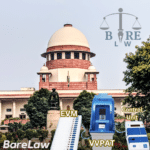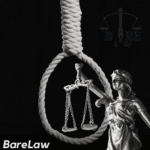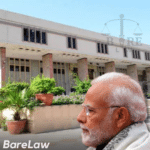
unjab and Haryana High Court Rules on Copyright of Life Stories: T-Series v. Dreamline Reality Movies
Table of Contents
The Punjab and Haryana High Court has elucidated the complex issues related to life story copyright in a noteworthy decision. The decision, which was made in the T-Series v. Dreamline Reality Movies case, tackles the difficult legal issues surrounding the representation of actual events in artistic works, especially in the film industry.
The main focus of the issue is the making and distribution of the film “Dear Jassi,” which explores the horrific killing of Indo-Canadian lady Jaswinder Kaur, also known as Jassi Sidhu. The issue of copyright ownership over the life stories of the people portrayed in these kinds of works is at the core of the legal debate.
The Court’s decision clarifies that, unless those facts are converted into a material form of expression, like a book or literary work, their existence alone does not automatically grant copyright protection. Judge Rajbir Sehrawat stressed that a claim of copyright infringement can only be made in the event that an existing work that tells the person’s life story already exists.
Dreamline Reality Movies’ claim that they held the rights to make a movie based on the life of Sukhwinder Singh @ Mithu, Jassi Sidhu’s husband, was at the center of the legal dispute. Nonetheless, the Court determined that Singh had not produced any creative work or expression thereof, therefore his life narrative by itself does not qualify as copyrightable material.
Conversely, the appellant in this case, T-Series, had acquired the rights to adapt the narrative from a book written by journalist Fabian Dawson that summarized the circumstances surrounding Jassi Sidhu’s death and the murder that followed. With this acquisition of rights, T-Series now had the legal right to make the movie.
In addition, the Court emphasized that Singh did not acquire copyright ownership over the larger story despite his connection with the events, especially in light of the extensive coverage of the case in court documents, media outlets, and social media.
The decision essentially makes it clear that ideas are not the exclusive property of copyright; rather, it protects the expression of ideas. It restates the fundamental idea that copyright infringement can only happen in cases where there is a clearly recognized work or creative that is protected by copyright.
Finally, the ruling in T-Series v. Dreamline Reality Movies by the Punjab and Haryana High Court sets a noteworthy precedent for defining the parameters of copyright protection for life stories portrayed in artistic works, providing direction and clarity to those involved in the entertainment sector.
FAQ
What was the main point of contention in the Dreamline Reality Movies v. T-Series case?
The issue concerned copyright ownership of the life narrative portrayed in the film “Dear Jassi,” which chronicles Jassi Sidhu’s murder and the court cases that followed.
What decision did the Court make protecting life stories’ copyright?
The Court made it clear that unless information is expressed in a tangible form, like a book or literary work, it is not protected by copyright.
What production rights did T-Series purchase to make the movie?
Journalist Fabian Dawson’s book, which detailed the circumstances surrounding Jassi Sidhu’s life and murder, was licensed to T-Series, giving their film production legitimacy.
Barelaw, an online platform dedicated to delivering comprehensive legal knowledge, proudly presents its exclusive category of case briefs. This section is meticulously crafted to offer insightful analyses of landmark judgments, providing a valuable resource for legal professionals, students, and anyone interested in understanding the intricacies of law. Our case briefs delve deep into pivotal court decisions, exploring the rationale behind each judgment and its impact on the legal landscape.
We understand that navigating the complexities of legal judgments can be challenging. That’s why our case briefs are designed to be both informative and accessible, ensuring that readers gain a clear understanding of the key legal principles involved. Each brief includes a summary of the facts, the legal issue at hand, the court’s reasoning, and the ultimate decision. This structured approach makes it easier for our audience to grasp the nuances of each case.
Our website is a treasure trove of legal wisdom, constantly updated with the latest and most significant cases. Whether you’re a law student seeking to enhance your knowledge, a practicing attorney looking for a quick reference, or simply a curious mind eager to understand the law’s evolution, Barelaw is your go-to destination
Explore our case briefs and immerse yourself in the world of law. Visit our website now and discover the wealth of legal knowledge at your fingertips. The link is provided below for your convenience and direct access to our expansive legal database
You can access more legal drafts here – https://www.barelaw.in/legal-drafts/





